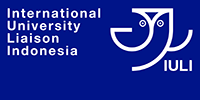
Andrean Wangsa (FTE17), Hessa Ameera Pradia (FTE18) and Andharisanti Azalia Maharani (FTE18) attended a FSMS (Food Safety Management System) training event on June 29th 2019 in Maxone Hotel, Rawamangun which was held by PT. MINA Indonesia. The event focused on FSSC, GMP, HACCP, SSOP, and ISO 22000, presented by Mr Matheus Nugroho, S.Pi, MP.
FSSC stands for Food Safety Certification System, it is a company-level certification based on a scheme developed by the Foundation for Food Safety Certification.[1]
GMP stands for Good Manufacturing Practice, it is a system for ensuring that products are consistently produced and controlled according to quality standards. It is designed to minimize the risks involved in any pharmaceutical production that cannot be eliminated through testing the final product. In the seminar, there was also an emphasis towards PRPs(Prerequisite Program), which are the “basic conditions and activities that are necessary to maintain a hygienic environment through the food chain suitable for the production, handling, and provision of safe end products and safe food for human consumption.[2]
HACCP stands for Hazard Analysis Critical Control Points, a preventative food safety system that takes stock of the hazards in food. The control process has been set up by the European Union and wants to make sure that the production of food entails as little hazards as possible for consumers.[3]
SSOP stands for Sanitation Standard Operating Procedures is the common name given to the sanitation procedures in food production plants which are required by the Food Safety and Inspection Service of the USDA.[4]
SSOPs are generally documented steps that must be followed to ensure adequate cleaning of product contact and non-product surfaces. These cleaning procedures must be detailed enough to make certain that adulteration of product will not occur.[5]
And lastly, ISO 22000 is a standard developed by the International Organization for Standardization dealing with food safety. [6]
Those 5 quality standards are important for people to understand before they work in a food company in order to prevent any hazards/contamination, whether they are biological, physical, or chemical.
The event had a total of 62, and consisted of an online pre-test, seminars, an interactive HACCP plan development workshop which consisted of 7-8 people, and was ended with an online post-test.
References:
- The Foundation for Food Safety Certification Quality Certifications Certifications List on ThomasNet.com® Certification Search. (2019). Certifications.thomasnet.com. Retrieved 2 July 2019, from https://certifications.thomasnet.com/certifications/glossary/quality-certifications/the-foundation-for-food-safety-certification/
- Good Manufacturing Practice (GMP) Resources. (2019). ISPE | International Society for Pharmaceutical Engineering. Retrieved 2 July 2019, from https://ispe.org/initiatives/regulatory-resources/gmp
3. HACCP-Info | LabelFresh. (2019). Labelfresh.eu. Retrieved 2 July 2019, from https://www.labelfresh.eu/en/haccp-info
4. Sanitation Standard Operating Procedures. (2019). En.wikipedia.org. Retrieved 2 July 2019, from https://en.wikipedia.org/wiki/Sanitation_Standard_Operating_Procedures
5. Sanitation Standard Operating Procedures. (2019). En.wikipedia.org. Retrieved 2 July 2019, from https://en.wikipedia.org/wiki/Sanitation_Standard_Operating_Procedures
6. ISO 22000. (2019). En.wikipedia.org. Retrieved 2 July 2019, from https://en.wikipedia.org/wiki/ISO_22000
(Andrean Wangsa/FTE2017)



